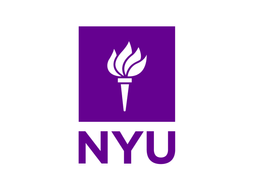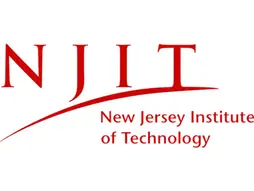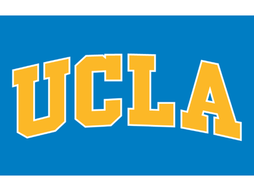12 Robotics Programs for High School Students
With robots becoming more prominent in our society, the field of robotics will only continue to advance in the future. If you are interested in building and designing machines, then this career path may be for you.
Most of these summer programs will involve not only learning about the field of engineering as a whole but applying these concepts to make creations of your own.
Here are 12 robotics opportunities available to ambitious high school students.
1. Veritas AI
Veritas AI, founded and run by Harvard graduate students, offers programs tailored for high school students who are passionate about artificial intelligence. Students who are looking to get started with AI, ML, and data science would benefit from the AI Scholars program. Through this 10-session boot camp, students are introduced to the fundamentals of AI & data science and get a chance to work on real-world projects.
Another option for more advanced students is the AI Fellowship with Publication & Showcase. Through this program, students get a chance to work 1:1 with mentors from top universities on a unique, individual project. A bonus of this program is that students have access to the in-house publication team to help them secure publications in high school research journals. The fellowship encourages students to explore interdisciplinary approaches, enabling them to merge AI with various fields such as finance, medicine, sports, environmental science, and more! You can also check out some examples of past projects here.
Location: Virtual
Cost:
$2,290 for the 10-week AI Scholars program
$5,400 for the 15-week AI Fellowship with Publication & Showcase
$6,900for both
Need-based financial aid is available for AI Scholars. You can apply here.
Application deadline: On a rolling basis. Winter cohort deadline - December 1, 2024
Program dates: Various according to the cohort
Program selectivity: Moderately selective
Eligibility: Ambitious high school students located anywhere in the world. AI Fellowship applicants should either have completed the AI Scholars program or exhibit experience with AI concepts or Python.
Application Requirements: Online application form, answers to a few questions about the student's background & coding experience, math courses, and areas of interest.
The Lumiere Research Scholar Program is a rigorous research program tailored for high school students. The program offers extensive 1-on-1 research opportunities for high school students, across a broad range of subject areas that you can explore as a high schooler.
The program pairs high-school students with Ph.D. mentors to work 1-on-1 on an independent research project. At the end of the 12-week program, you’ll have developed an independent research paper! You can choose research topics from subjects such as psychology, physics, economics, data science, computer science, engineering, chemistry, international relations, and more. You can find more details about the application here.
Application Deadline: Varying deadlines based on cohort. Main summer deadlines are March 15, April 15, and May 15
Duration: Options range from 12 weeks to 1 year.
Location: Remote — you can participate in this program from anywhere in the world!
Eligibility:
You must be currently enrolled in high school
Students must demonstrate a high level of academic achievement. (Note. students have an unweighted GPA of 3.3 out of 4)
No previous knowledge of your field of interest is required!
Program Dates: The summer cohort runs from June to August, the Fall cohort from September to December, the Winter cohort from December to February, Spring from March to June
Horizon offers trimester-long research programs for high school students across subject areas such as data science, machine learning, political theory, biology, chemistry, neuroscience, psychology, and more! It is one of the very few research programs for high school students that offers a choice between quantitative and qualitative research!
Once you select a particular subject track and type of research you’ll be paired with a professor or Ph.D. scholar (from a top university) who will mentor you throughout your research journey. You’ll work to create a 20-page, university-level research paper that you can send to prestigious journals for publication as a high school student.
This program is a solid opportunity for you to pursue a research program in highly specialized fields, under the guidance of a top scholar. The program also provides a letter of recommendation for each student, as well as detailed project feedback that you can use to work on future projects and on college applications. Apply here!
Location: Virtual
Application Date: May 21, 2024 for the summer cohort, and September 25, 2024 for the fall cohort
Program Dates:
Summer seminar - June 24, 2024 - September 2, 2024
Fall seminar - October 23, 2024 - February 19, 2025
Lab dates are flexible, but you must apply 4 weeks in advance.
Eligibility: High school students with good academic standing (>3.67/4.0 GPA) can apply. Most accepted students are 10th/11th graders! Only a couple of tracks require formal prerequisites, more details of which can be found here.
This program has an emphasis on providing hands-on research experience for Massachusetts students who are rising seniors. Therefore, attendees can expect to work with experienced Northeastern faculty at the research laboratories within Northeastern University’s Colleges of Engineering, Science, and Health Sciences, which can range from bioengineering and artificial intelligence – although this year’s projects are not yet fully decided. The program also offers education and career counseling, a chance to explore college life, field trips, and career exploration seminar series on topics including engineering.
Costs: None
Eligibility:
Must be permanent Massachusetts residents.
Priority access is given to those students who have low access to similar programs and live within commuting distance of Northeastern University.
Students in Maine are eligible to participate in Young Scholars’ Program @ Roux Institute in Portland, Maine. More details found here: https://www.surveymonkey.com/r/2023-YSPR-APPLY.
Must be a current junior student.
Students from any school (public, private, homeschooled, etc) are eligible.
Selectivity: High
Lumiere has been founded by researchers at Harvard and Oxford. Hundreds of ambitious high school students do politics research through the Lumiere Research Scholar Programs. Each student is paired with a top PhD and works with their mentor 1-on-1 to produce a university-level research paper.
The programs are fully virtual and vary in duration based on the student’s end goal with respect to how much of a deep dive they would prefer. The research opportunities range from pure political science to combining politics with other social sciences.
Past research projects include comparisons in sports training between humans and robots, exploring how robots increase the efficacy of monitoring disasters such as wildfires
Also, check out the Lumiere Foundation, a non-profit research program for talented, low-income students.
Location: Virtual
Application deadline: There are four cohorts throughout the year. Applications are due in February, May, September, and December, respectively. Apply here!
Program dates: There are four cohorts throughout the year in spring, summer, fall, and winter.
Eligibility: All high school students may apply.
The Playto Labs Robotics Summer Camp for Kids offers an engaging and comprehensive
online program focused on robotics and STEM education. Students aged 8-16 will participate in live 1:1 classes over 7-8 months, receiving personalized instruction and mentorship. The program includes a robotics kit, enabling students to engage in hands-on projects that cover a wide range of topics, including robotics, coding, and electronics. Throughout the camp, students will build, program, and test their own robots, developing skills in robotics and coding while also enhancing critical thinking, analytical skills, and confidence in their ability to build things. If you are looking for a robotics summer camp, Playto Labs is a solid choice.
Cost: $800-$1000 for live 1:1 classes over 7-8 months, including a robotics kit
Eligibility: Students aged 8-16
Location: Virtual
Program Dates: Throughout the summer
For rising 9th and 10th graders, the Virtual Engineering Summer Program will be held over a course of a week. Not only are there workshops for students to learn about engineering majors at UW Madison, but also they will be mailed engineering kits and have hands-on experience in robotics design. On the other hand, for rising 11th and 12th graders, the residential Engineering Summer Program will be held over the course of three weeks. The program offers a curriculum in STEM, hands-on workshops, visits to industry sites, field trips, mentoring from faculty, and an opportunity to network with experts in the industry. Students will be expected to learn about design and work in teams.
Costs: None
Eligibility:
For VESP:
Have an interest in STEM
Be a U.S. citizen or permanent resident
Be a current 8th grader or freshman in high school
For ESP:
Have a strong interest in STEM
Be a U.S. citizen or permanent resident
Be a current sophomore or junior in high school
Have completed at least one year of algebra, geometry, and chemistry
Have a minimum unweighted grade-point average of 3.0 on a 4.0 scale.
Selectivity: High
This program emphasizes engineering, fabrication, robotics, and computation in the context of solving real world problems. Those selected for the program will be allowed to pursue their own engineering design projects through the state-of-the-art Nolop Makerspace at Tufts’s technology, which includes laser cutting, 3D printing, robotics, and computation. Guest speakers will talk about their work and the importance of engineering, which may serve as inspiration for the student’s projects of choice.
Costs: Commuter: $4,000, Residential: $5,500, Materials Fee: $200, limited scholarships available
Eligibility:
Currently in grades 10-12 or graduating from high school in spring 2022.
For residential students,they must be no younger than 15 at the start of the program and no older than 17 before the program end date.
Both domestic and international students are welcome to apply, but if English is not your primary language you will need to submit evidence of English Language proficiency.
Selectivity: High
For 6 weeks, high school students will spend seven hours per workday in classes or other activities, which can range from STEM and humanities courses, workshops, guest speakers, and tours. One of these classes will be an elective that will require the student to work on work on a project, and past elective subjects have included engineering design and machine learning. At the end of the program, there will be a final symposium for these projects to be presented to the broader MIT community.
Costs: None
Eligibility:
U.S. citizens or permanent residents
Be a current high school junior
Selectivity: Very High
As the name of the program implies, this Embry-Riddle summer program will focus on robotics & autonomous systems, which is a rapidly expanding field. With the Embry-Riddle faculty and undergraduate students in robotics competition teams, program attendees will create and test autonomous robots of their own. Throughout the week, students will be incorporating concepts from mechanical, electrical, and computer engineering, which will be useful in their future careers in engineering and robotics.
Costs: $975
Eligibility: Students aged 15-18
Selectivity: Moderate
During Saint Louis University's Robotics Summer Academy, attendees will establish teams and build their own robots using custom hardware. This project will involve mechanical, electrical and computer engineering concepts in order to design and fabricate robot parts. These robots will be put into friendly competitions with other students’ robots, and at the end of camp, students will have their own functioning robot to keep. Moreover, participants will meet with current SLU engineering students and faculty, visit their engineering labs and facilities, and explore campus.
This is a day camp only; overnight housing is not provided for the Robotics Summer Academy.
Costs: $650, scholarships available
Eligibility:
High school students entering grades 9 through 12.
Space is limited to 25 students.
Selectivity: Moderate
The UT Computer Science Summer Academies is offering high schoolers of all skill levels the opportunity to learn more about robotics on the University of Texas campus. The topics that will be covered include but are not limited to introductory programming, Arduino, sensors, and controlling a robot. As such, the hands-on experience will involve assembling and programming a robot, utilizing tools in robotics research, competing in a robot race, and more. Of course, you can expect to explore the UT campus and meet current students as well. Applications will open January 31st.
Costs: $2,100, limited scholarships available
Eligibility: Current 9th - 12th grade students
Selectivity: High
WPI’s residential program provides two weeks of STEM exploration in their course curriculum. Uniquely, while students will primarily focus on a STEM “major,” they also will pursue a humanities “minor,” which can range from psychology to painting to business. If you choose Robotics Engineering as your major, you will learn about robotics engineering, such as force, torque, and stress analysis, material properties, processing, and selection, power requirements, micro controllers, sensor operations, programming, pneumatics. With this knowledge you will create a machine to solve a challenging robotics problem and be tested in an end-of-session tournament.
Cost: $3,595, financial assistance available
Eligibility:
Be a rising 10, 11, and 12th grade
Selectivity: High
If you are specifically interested in radar systems, then MIT’s LLRISE program will be suited for you. Throughout July, rising seniors will be taught how to build small radar systems, such as a Doppler and range radar. Highly talented scientists and engineers will be working alongside the attendees and assisting them. The workshop will be held at two locations: the MIT campus in Cambridge, MA and Lincoln Laboratory in Lexington, MA.
Costs: None
Eligibility:
Be a U.S. citizen. Foreign citizens who are permanent residents are not eligible.
Be passionate about STEM.
Be a current junior.
Must be fully vaccinated against COVID-19 or have a religious or medical exemption.
Selectivity: Very High
Ladder Internships is a selective program equipping students with virtual internship experiences at startups and nonprofits around the world! The startups range across a variety of industries, and each student can select which field they would most love to deep dive into. This is also a great opportunity for students to explore areas they think they might be interested in, and better understand professional career opportunities in those areas. The startups are based all across the world, with the majority being in the United States, Asia and then Europe and the UK.
The fields include technology, machine learning and AI, finance, environmental science and sustainability, business and marketing, healthcare and medicine, media and journalism and more.
You can explore all the options here on their application form. As part of their internship, each student will work on a real-world project that is of genuine need to the startup they are working with, and present their work at the end of their internship. In addition to working closely with their manager from the startup, each intern will also work with a Ladder Coach throughout their internship - the Ladder Coach serves as a second mentor and a sounding board, guiding you through the internship and helping you navigate the startup environment.
Interns are offered one-on-one training in communication, time management and other such valuable skills and will also have the opportunity to attend group training sessions with other interns in their cohort. The virtual internship is usually 8 weeks long.
Cost: $1490 (Financial Aid Available)
Location: Remote! You can work from anywhere in the world.
Application deadline: April 16 and May 14
Program dates: 8 weeks, June to August
Eligibility: Students who can work for 10-20 hours/week, for 8-12 weeks. Open to high school students, undergraduates and gap year students!
Lydia is currently a sophomore at Harvard University, studying Molecular and Cellular Biology. During high school, she pursued engineering activities like attending the Governor's School of Engineering and Technology. In her spare time, she likes to create digital art while listening to music.











